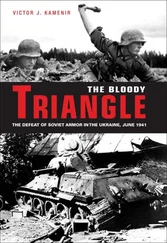This simple fact speaks volumes. More disconcerting, however, is the finding by NGOs that legalization in these two nations has led to a dramatic increase in demand. There is mounting evidence showing a direct correlation between the legalization of prostitution and an increase in victims of trafficking for sex. Given this shift toward legalizing prostitution and its harmful effects, a number of women’s groups have asked the U.S. government to place Germany and the Netherlands on Tier Three. One of these groups, the Coalition against Trafficking in Women, has recommended that no country legalizing prostitution should be allowed to remain on Tier
One. The coalition argues that “at the very least, the TIP report should note that countries that have established legal regimes in which prostitution is allowed to flourish have exorbitantly high numbers of women who have been trafficked.”
Strangely, the State Department remains disingenuously mute on the issue, despite the fact that the U.S. Trafficking in Persons Protection Act specifically states that governments are not allowed to legalize prostitution as a way to “prohibit trafficking and punish acts of trafficking” or as a way to make “serious and sustained efforts to eliminate trafficking,” as the act requires. Moreover, the U.S. government has elsewhere taken an unequivocal stand on prostitution. On February 25, 2003, for example, Bush signed a National Security Presidential Directive to advance the fight against trafficking. The directive states that “prostitution and related activities, which are inherently harmful and dehumanizing, contribute to the phenomenon of trafficking in persons.” It does not mince words in acknowledging the link. Prostitution was similarly condemned by the United States Leadership against HIV/AIDS, Tuberculosis, and Malaria Act of 2003, which declares that “prostitution and other sexual victimizations are degrading to women and children and it should be the policy of the United States to eradicate such practices. The sex industry, the trafficking of individuals into such industry, and sexual violence are additional causes of, and factors in, the spread of the HIV/AIDS epidemic.”
So that, then, is the official line. In practise, however, the boundaries of the line get blurred.
ON SEPTEMBER 9, 2003, with less than a month to go before the U.S. was to impose sanctions on the fifteen Tier Three countries, President Bush promoted ten of them to the safer and more respectable rank of Tier Two. The move barely registered a peep in the news media. No doubt the State Department breathed a collective sigh of relief. After all, 2003 was to be the year in which the sheriff would show the world it meant business by sticking to its guns and punishing any country that remained on Tier Three, and this might have meant some difficult diplomacy for the State Department. Now the five countries left on Tier Three are Burma, Cuba, North Korea, Liberia and Sudan. As punishment, the U.S. won’t provide funding for officials or employees of these governments to participate in educational and cultural exchange programs until the countries comply with the minimum standard in combatting trafficking or make significant efforts to do so. Oh, how chilling! The fact is that the U.S. government has little or no diplomatic, economic, trade or cultural ties with any of these nations, so they, and the U.S. government, have little to lose.
Not surprisingly, the countries elevated by Bush to the swollen ranks of Tier Two include Greece and Turkey—both NATO allies—but they also include Bosnia, a fledgling nation teeming with UN peacekeepers, whose sky-blue berets have been spotted in brothels filled with sex slaves from Moldova, Romania and Ukraine.
In its June 2003 TIP report, the State Department claimed that the Greek government had moved with “Herculean force” to change the trafficking landscape of this notorious destination nation. By contrast, the State Department’s Country Report on Human Rights, released eight months later in February 2004, concluded that “trafficking in women and children for prostitution” in Greece “increased sharply in the last few years.” The Country Report went on to state that “one academic observer estimated that approximately 40,000 women and children, most between the ages of 12 and 25, were trafficked to the country each year for prostitution.” It also acknowledged that the trafficking of children was a particular problem. “While there were reports that child trafficking has decreased, the practice persisted,” it said, noting that local police corruption played a role in facilitating trafficking into the country and that, according to local NGOs, some police officers were in the pay of organized crime networks involved in trafficking. “While the law permits court prosecutors to allow women who press charges against their traffickers to remain in the country legally, anecdotal reports indicated that trafficking victims continued to be deported,” the report pointed out.
The 2004 Country Report on Turkey found it “lacked a consistent, comprehensive approach” in dealing with trafficking of women and that there were “credible reports that police corruption contributed to the trafficking problem.” According to the Country Report, “There were allegations that police allowed operation of informal brothels in Istanbul and could also be bribed by traffickers at ports of entry.” Moreover, “The government tended to treat trafficking in persons as a voluntary prostitution and illegal migrant issue,” which means the women get deported. Finally, the report pointed out that Turkey “has not developed any anti-trafficking information campaigns aimed at the general public.”
And then there’s Bosnia. The State Department Country Report noted that trafficking in persons in Bosnia “remained a serious problem.” According to the findings, “there were reports that police and other officials were involved in trafficking.” Moreover, a disquieting joint report released on December 11, 2003, by the Organization for Security and Cooperation in Europe (OSCE), the UN and the Stability Pact for South Eastern Europe concluded that “failure to protect the human rights of trafficking victims is a key obstacle to progress in the fight against trafficking and organized crime” in the Balkan states. That report highlighted a disturbing trend —an increase in anti-trafficking activities in the region but little progress in assisting actual victims—and stressed that there was “ineffective law enforcement and a lack of options for women and children… rather than any actual decline in the scale of trafficking” and that there had been “no real increase in the prosecution or sentencing of traffickers.”
With all these unsettling assessments at its fingertips, most published by the State Department itself, why the U.S. decided to elevate Turkey, Greece and Bosnia remains a mystery—unless one adopts a cynical view of U.S. diplomacy in this area.
What is even more telling, though, is the curious ranking of three of the countries that did find themselves relegated to Tier Three. Neither Cuba nor North Korea had appeared on any TIP lists before, but all of a sudden they were the most egregious offenders! Their previous absence stemmed from the fact that the U.S. government has no embassies in these countries, which makes it difficult to gather evidence to make an informed decision on their tier placement. When asked about the quality of the evidence at the June 11, 2003, news conference, Miller, the director of the anti-trafficking office, responded: “The information on North Korea and Cuba is not ambiguous. Cuba has a government-run sex tourism business that employs minors. Cuba has no efforts at prevention, protection or prosecution. There are not even ambiguous evidence of that. The same can be said for North Korea, where stories, reports from NGOs, document forced labor trafficking and there are no efforts. So the information may not be as vast as where we have an embassy, but there is significant information and it’s not ambiguous.”
Читать дальше












